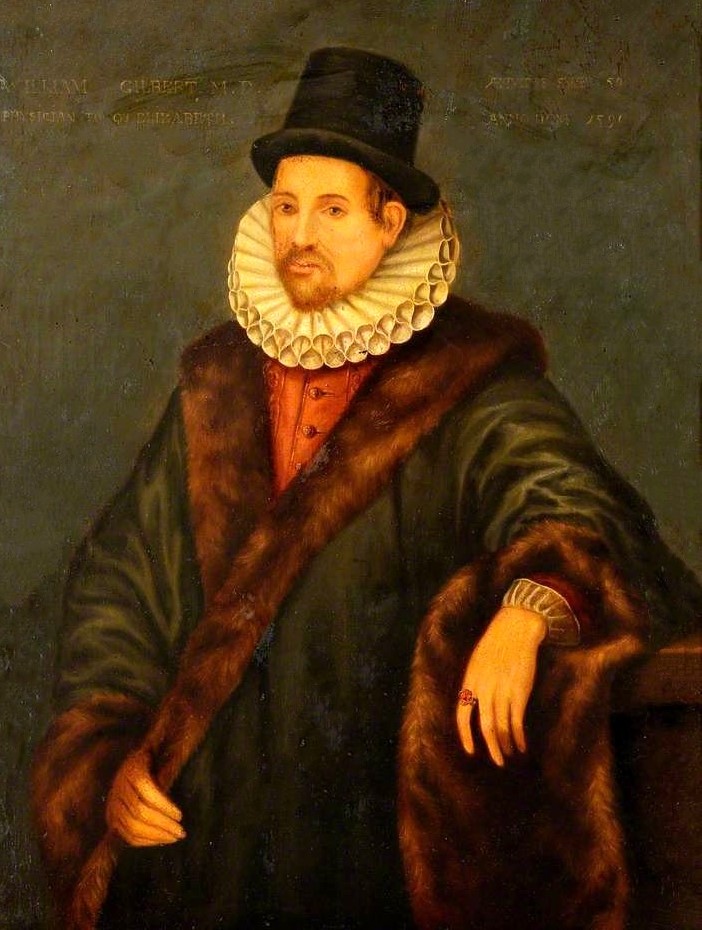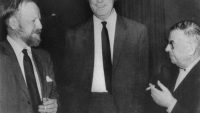William Gilbert, born on May 24, 1544, in Colchester, Essex, England, was a prominent English physician, natural philosopher, and scientist known for his pioneering work in the field of magnetism. Gilbert studied at Cambridge University, where he earned his medical degree and later served as president of the College of Physicians. His fascination with the natural world led him to conduct extensive experiments and observations, particularly in the field of magnetism, which would become his primary area of research.
Gilbert’s most famous work, “De Magnete” (On the Magnet), published in 1600, laid the foundation for modern studies of magnetism and electricity. In this groundbreaking treatise, Gilbert proposed that the Earth itself was a giant magnet, a concept that revolutionized the understanding of terrestrial magnetism. He also introduced the term “electricity,” derived from the Greek word for amber, “elektron,” and conducted experiments to investigate the phenomenon of static electricity.
In addition to his contributions to magnetism and electricity, Gilbert made significant advancements in the study of medicine and physiology. He was among the first to conduct systematic experiments to study the function of the circulatory system, the anatomy of the human body, and the properties of various substances. Gilbert’s pioneering work laid the groundwork for future discoveries in the fields of physics, medicine, and natural philosophy, earning him recognition as one of the leading scientists of the Renaissance era.

To know more about William Gilbert, let’s take a look at these 10 interesting facts about William Gilbert.
- Founder of Modern Magnetism : William Gilbert is often considered the father of modern magnetism for his seminal work, “De Magnete,” which laid the foundation for the scientific study of magnetism and electricity.
- Earth as a Magnet : In “De Magnete,” Gilbert proposed the revolutionary idea that the Earth itself is a giant magnet, a concept that was groundbreaking at the time and contributed significantly to the understanding of terrestrial magnetism.
- Medical Career : Despite his significant contributions to science, Gilbert was also a trained physician and served as president of the College of Physicians in London. He made notable contributions to the field of medicine, particularly in the study of physiology and anatomy.
- Terrestrial Magnetism Experiments : Gilbert conducted numerous experiments to investigate terrestrial magnetism, including using lodestone (a naturally magnetic mineral) and devising various instruments to study magnetic phenomena.
- Electricity Investigations : Gilbert coined the term “electricity” from the Greek word for amber, “elektron,” and conducted experiments to explore the properties of static electricity, contributing to the early understanding of electrical phenomena.
- Study of Geomagnetism : Gilbert’s work extended beyond simple magnetism to include the study of geomagnetism, or the magnetic properties of the Earth. His observations and theories laid the groundwork for future studies in this field.
- Royal Physician : Gilbert served as a physician to Queen Elizabeth I of England, which provided him with resources and opportunities to conduct his scientific investigations.
- Influence on Scientific Method : Gilbert’s emphasis on systematic observation, experimentation, and mathematical analysis helped establish the scientific method as a standard approach to inquiry in the natural sciences.
- Legacy of “De Magnete” : “De Magnete” remains one of the most influential scientific treatises of the Renaissance period and is considered a landmark work in the history of science.
- Historical Impact : Gilbert’s contributions to the understanding of magnetism and electricity laid the groundwork for later discoveries in physics and engineering, shaping the course of scientific progress for centuries to come.
William Gilbert’s contributions to the fields of magnetism, electricity, and medicine were truly groundbreaking and laid the foundation for modern science. His pioneering work in “De Magnete” revolutionized the understanding of magnetism and electricity, proposing the Earth itself as a giant magnet and introducing the term “electricity” into scientific discourse. Beyond his scientific achievements, Gilbert’s emphasis on systematic observation and experimentation helped establish the scientific method as a standard approach to inquiry. His legacy as a Renaissance scientist and physician endures, with his work continuing to influence the study of physics, medicine, and natural philosophy to this day. William Gilbert’s profound impact on the development of modern science cements his place as one of the foremost figures in the history of scientific inquiry.



